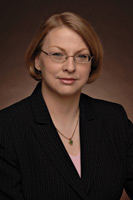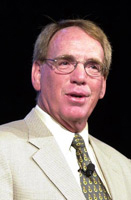
Predicting more and enjoying it less: How ‘anticipated regret’ takes the fun out
When people make predictions about certain events, their enjoyment in watching those events decreases, according to a recent study by W. P. Carey School marketing professors Naomi Mandel and Stephen Nowlis. This is likely the result of "anticipated regret" — the fear that they may be proven wrong. In fact, the anxiety caused by the concern that one might lose may be more powerful than the sting of actually losing.






